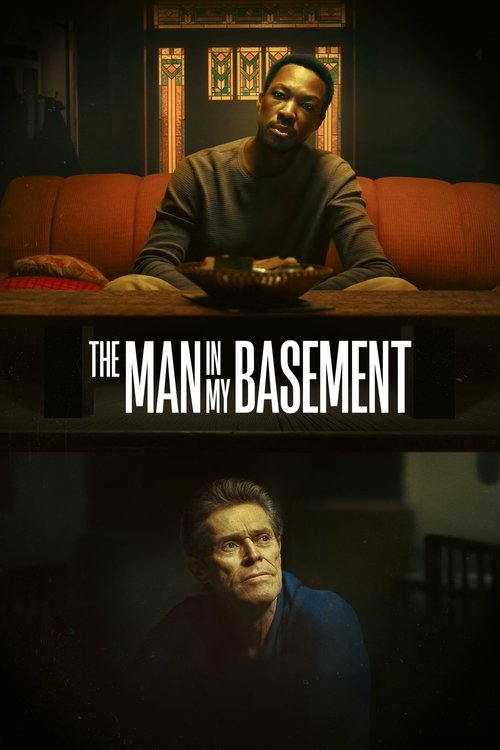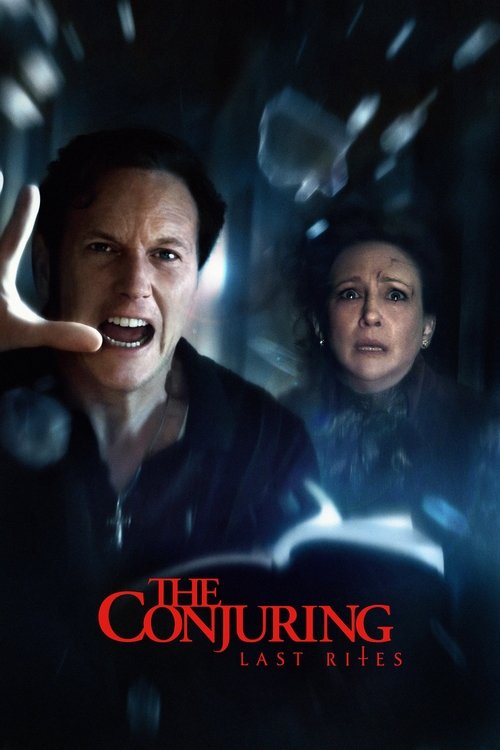
Ask Your Own Question
What is the plot?
Caleb Sinclaire wakes in the small hours of the morning, unable to sleep. He works on construction crews by day and paces his cramped house by night, replaying the breakup that he cannot let go. The woman who left him sits at the center of everything he cannot reconcile; he tells himself that the pain proves a rule he will never abandon -- that women are untrustworthy and cheap. He lives with his father, Donald, in the same weathered house where memories pile up like tools in a shed. Caleb's hands are rough from labor, his nights hollow from insomnia, and his conversation loops back to the same bitter pronouncements about women. When Peter, his younger brother, calls to say he is coming home for Thanksgiving, Caleb's world tilts around the arrival. Peter brings with him a new girlfriend, Emma, and Caleb receives the couple with a mixture of resentment and possessiveness he barely manages to hide.
When Peter steps through the front door, the reunion looks like it should be ordinary: siblings trading barbs, Donald shuffling between the kitchen and the living room, and the three of them convening at the dining table. Emma arrives with a quiet, nervous smile and a softness in her manner that Caleb registers at once. He sees echoes of the ex who left him -- the tilt of Emma's head, the way she speaks less to dominate than to listen -- and he finds the resemblance destabilizing. From the beginning Caleb treats Emma as a wager against Peter's future: he insists to his brother that Emma will hurt him, that she will betray him, that she will walk away and prove he was right about women. He repeats his accusations aloud, pushing them at Peter until the younger man shrugs them off as sour humor or brotherly concern. Caleb does not stop there. He corners Emma in the kitchen, in the hallway, in the dim warmth of the living room and tells her bluntly that she must not break his brother's heart. The threats are clumsy, sometimes cruel; he says things intended to provoke, hoping to expose a flaw that will vindicate his bitterness.
Caleb keeps trying to test Emma. He tries to make her reveal herself the way he believes women will. He makes crude jokes and leers that are meant to be traps; every polite rebuff from Emma becomes a challenge that widens his rage and his longing at the same time. As the days of the Thanksgiving visit pass, Caleb's attempts to entangle her escalate from verbal assaults to action. He tells himself he will seduce her to prove a point, to force her into the same category as the woman who dumped him. But when he gets closer to her, the plan fractures -- Emma's reactions are not what he expects. She is unsure, she blushes, she deflects with laughter that sounds like surprise and nerves, not coyness. The more he pursues, the more he recognizes traits of the past relationship that still hurts: the same vulnerability, the same way she touches her hair when uncertain. That recognition complicates his strategy. Where he intended to humiliate, he finds himself taking interest; the mockery thins into obsession.
Peter and Emma attempt to be intimate in Peter's old bedroom one night. They both promise that the first time will be meaningful; the scene is awkward and tentative. Peter, inexperienced and earnest, tries to do things he imagines will be right, but their movements are stiff and fumbling rather than passionate. Tension swells and then collapses into embarrassment: they abort the attempt before anything is consummated. Peter leaves the room stunned and unsure, while Emma sits on the edge of the bed, cheeks wet with unshed tears, fighting a mixture of guilt and confusion that is hard to name. She wanders into the house's quieter spaces, searching for air that will steady her hands.
Caleb finds her while he is prowling the house in the aftermath of the aborted encounter. He confronts her in the shadowed hallway, voice low and urgent. He tells her he has some understanding of her, that she will only break Peter's heart like all the others have broken his. His words are sharp, but the look in his eyes is no longer only accusation; it is also hunger and a strange, almost pleading need. The confrontation slides from argument to seduction in a few raw, swift beats. Emma hesitates but then yields. They pull each other into a bedroom and have sex. The act is clumsy in moments and intimate in others; Caleb moves with a mixture of anger and tenderness, Emma with the kind of bewildered surrender that marks a first time. Afterward, the room is thick with complicated noises: she laughs in a way that is half-relief, half-sob; she weeps softly into the pillow. Caleb, breathing heavily, watches her expression shift from shame to something like astonishment. He tastes the truth in that astonishment and it hits him: he has just taken something that belonged to his brother. He realizes at the moment of it that Emma's reactions are those of someone experiencing this for the first time. The pieces fall into place with a cold clarity that stops him as effectively as any blow.
A sweep of panic seizes Caleb. He knows in a new, bitter way that Emma is not the soulless betrayer he told himself every woman is. She is not the proof of his rule; instead, she is vulnerable and honest and, in violating the boundary between her and his brother, he has stolen something sacred. He dresses quickly, trying to find a way to erase the act with silence and distance, but justice of a different sort interposes: Donald discovers him returning from the room. The father sees the situation, the tension in Caleb's shoulders, the reddened eyes of Emma. Before either man can explain, Peter calls out, searching the house for Emma because he is still worried about how their stalled attempt at intimacy landed. Peter's footsteps clatter, his voice grows louder in the hall, and Donald acts on reflex. He ushers Caleb into a narrow closet and commands him to stay quiet. Caleb presses himself against the wall of the closet, the air smelling faintly of winter coats and old wood, while Peter's voice echoes past the door. Emma answers Peter's call from another room, her voice pitched too high with forced brightness; Donald slams the closet door closed again to muffle the sound. For an instant the three of them pretend everything is ordinary, and when Peter asks aloud whether Emma is all right, Donald replies in a tone that insists there is nothing to worry about.
In the pressure of the closet, in the hush of that forced calm, Caleb makes a decision. He moves from apology to leverage in a heartbeat. When Donald finally opens the closet, he expects rebuke; instead, Caleb confronts his father with a different threat. He pulls Donald aside and says he will say nothing about Emma if Donald keeps silent about a secret that will destroy Peter's understanding of their parents: Caleb tells Donald he will not reveal what has happened tonight, provided Donald admits that he, Donald, is the one who cheated -- that their mother did not have an affair as everyone has thought, but rather Donald was the one who betrayed her. Caleb uses this fact, the reversal of a long-standing belief, as a bargaining chip. The confession waits in the air between them like a loaded gun. Donald reacts with a rush of fear and shame; his face tightens, evidence of the years he has spent trying to bury his guilt. The two men reach a silent, ugly accord: Caleb will keep the night's events to himself and Donald will accept the humiliation of the truth remaining hidden from Peter. Caleb's blackmail is not loud or triumphant; it is a cold, small-handed maneuver that shifts the power dynamics at the house in a single minute.
Peter retreats into what he thinks passes for normality. He and Emma try again that night, or perhaps the next, and this time, after their earlier failure, they find a rhythm that eluded them before. They have sex; the awkwardness gives way to something that, for Peter, registers as intimacy and closeness. Emma does not tell Peter what happened with Caleb. She keeps that secret folded inside her chest, heavy with guilt and shame. Peter falls asleep afterward with a look of contentment that might be mistaken for bliss. He tells himself that things are right, that his relationship with Emma has found a gateway into adulthood. He is unaware that the memory of his first time has been stole from him in the dark, a ghost of an experience that will always lack the narrative he expects. The irony of the situation--Caleb's theft followed by Peter's oblivious consummation--hardens into a quiet, corrosive fact around which the family will now orbit.
When it is time for Emma and Peter to return to school, Donald drives them to the train station in the early morning. The station smells of coffee and heated metal; the train will take them back to the life they came from, leaving the house where the night's events occurred behind. On the ride to the station, Donald speaks to Peter with a voice that has been tamed by regret. He tells his son that he was not always the father he should have been and that he is sorry for the mistakes he made. He confesses that sometimes people do bad things because doing the right thing is unbearably difficult. The admission is blunt and human; Peter listens and nods, taking in the apology as if it can be a kind of repair. Donald's words are offered as a balm, a paternal attempt to correct for the long trail of imperfect choices he has made. He does not volunteer the specific detail Caleb used in his bargaining -- the admission of his own infidelity -- but his tone is frank, and Peter senses the apology's weight.
On the train, as the countryside rattles past, Peter turns to Emma, takes her hand, and tells her he loves her. He speaks with absolute conviction, the kind that emerges when a young person believes they have found a firm anchor in another person. Emma hears the words and breaks down. The tears come suddenly; she cries, muffles her face, laughs in a jagged way that alternates with sobs. She is unable to reconcile what she feels -- affection for Peter, guilt for what she has done, the claustrophobic secret she keeps in her belly. She allows Peter to hold her, to stroke her hair, and she hides what happened with Caleb behind forced explanations about stress and homesickness and the fatigue of travel. She does not confess to him that she lost her virginity to his older brother; she does not tell him that his first time was not his. The film leaves the question of whether she will ever tell him unresolved. She chooses, in that moment on the train, silence and a continuing intimacy that sits atop a lie.
After Emma and Peter leave, after the train's taillights disappear into dusk, Caleb goes back to his father's house alone. He walks up the front steps carrying a sense of the enormity of what he has done and a small, brutal relief that Peter remains in the dark. When he arrives at the door, Donald opens it and sees the strain in his son's face. There is an exchange that is careful and spare; Caleb tries to apologize, tries to offer some explanation, while Donald measures what a father can say to a son who has caused such pain. In the end, Donald lets Caleb in. The two men sit in the familiar clutter of the living room, and a new, tentative chapter of their relationship begins. Donald's willingness to receive his son into the house -- to welcome him back despite the moral mess -- signals a desire to rebuild a damaged father-son bond. The conversation that follows is quiet and urgent; they talk in halting fragments about mistakes and loyalty, about what can be forgiven and what cannot. There is no tidy reconciliation, but there is motion toward repair: Donald opens a door that had been closed for years, and Caleb steps through it.
The film ends with this image of reluctant rapprochement. There are no final confessions to Peter on the platform, no disclosures of who slept with whom. There are no deaths, no dramatic final confrontations; the story closes on an unsettled but honest note. The family has shifted; facts are rearranged behind the scenes -- a son's violation, a father's secret, a teenager's innocence taken and then recast as his own. The film leaves the future ambiguous: Emma rides the train with Peter, carrying weight she refuses to name; Peter believes he has had a first love made complete by mutual vulnerability; Donald and Caleb sit in the dim house, attempting to stitch together fragments of a relationship that has frayed under the strain of long-ago indiscretions. Caleb remains awake that night as he has for so many nights, but now his sleeplessness is accompanied by a new knowledge that his actions have consequences he must live with, whether he continues to narrate women as villains or he learns to live with the messy truths he helped create. The final scene ends with the house quieting around father and son, with the train disappearing into distance, and with three people moving forward in different directions, each carrying the same secret into their next moments.
What is the ending?
At the end of Vicious (2025), Polly, the protagonist, confronts the terrifying consequences of the mysterious box ritual she was forced to engage with. After a harrowing night of psychological and supernatural torment, she manages to break free from the nightmarish cycle, but the experience leaves her deeply changed and haunted by what she has endured.
The ending unfolds in a tense, scene-by-scene progression:
The final act begins with Polly trapped in a distorted reality shaped by the box's sinister rules--she must place inside it something she needs, something she hates, and something she loves. This ritual has unleashed a series of terrifying events that blur the lines between memory, reality, and nightmare. Polly's surroundings shift unpredictably, reflecting her internal struggle and the box's power to manipulate her perception.
As the night deepens, Polly encounters manifestations of her fears and regrets, each linked to the items she placed in the box. These encounters force her to confront painful memories and emotions she has long suppressed. The tension escalates as the box's influence tightens its grip, threatening to consume her entirely.
In a climactic moment, Polly faces the box itself, now a symbol of her torment and the source of the supernatural horror. She must make a final choice--whether to succumb to the box's power or to destroy it and reclaim her reality. With great effort and resolve, Polly destroys the box, shattering the nightmarish illusion.
The film closes with Polly emerging from the ordeal, physically unharmed but emotionally scarred. The experience has left an indelible mark on her psyche, suggesting that while the immediate threat is over, the trauma and consequences of the night will linger. The fate of other main characters involved in the story is not detailed in the available information, indicating that Polly's journey is the central focus of the film's conclusion.
This ending emphasizes the themes of confronting inner demons, the fragility of reality, and the enduring impact of trauma, encapsulated in Polly's harrowing night and her ultimate struggle for survival and sanity.
Is there a post-credit scene?
The movie Vicious (2025) does not have any confirmed post-credit scene. Available sources, including detailed movie information and post-credits scene databases, list no known stinger or extra scene after the credits for Vicious as of now.
The official trailer and other promotional materials do not mention or hint at a post-credit scene either. Additionally, no credible reports or reviews have documented a post-credits scene for this film.
Therefore, based on current information, Vicious (2025) does not include a post-credit scene.
What specific role does Dakota Fanning's character play in the story of Vicious (2025)?
Dakota Fanning stars as the lead character who spends the night fighting for her existence as she slips down a rabbit hole contained inside a gift from a late-night visitor, indicating her central role involves a harrowing psychological and physical struggle throughout the film.
How does the gift from the late-night visitor function as a plot device in Vicious (2025)?
The gift from the late-night visitor acts as a catalyst that traps the protagonist in a nightmarish scenario, effectively serving as the entry point into the film's psychological horror and the protagonist's fight for survival.
What are the key interactions between the protagonist and other characters such as those played by Kathryn Hunter and Mary McCormack?
While specific scene details are limited, Kathryn Hunter and Mary McCormack are part of the main cast, suggesting their characters have significant interactions with Dakota Fanning's protagonist, likely contributing to the unfolding psychological tension and horror elements.
What is the nature of the psychological horror elements depicted in Vicious (2025)?
The film blends psychological depth with atmospheric horror, focusing on the protagonist's descent into a nightmarish state triggered by the mysterious gift, emphasizing internal fears and mental unraveling alongside external threats.
How does the setting contribute to the unfolding of the plot in Vicious (2025)?
Though specific locations are not detailed, the film was shot in Ottawa, Ontario, and the confined setting implied by the protagonist's entrapment inside the gift suggests a claustrophobic environment that intensifies the horror and psychological tension.
Is this family friendly?
The 2025 movie Vicious is not family friendly and is best suited for older teens (16+) and adults due to its intense horror content. It contains strong bloody violence, some grisly images, and strong language, which may be upsetting for children or sensitive viewers.
Potentially objectionable or upsetting aspects include:
- Strong horror violence with scenes of physical attacks, injuries, and possible gore.
- Threatening and suspenseful situations where the protagonist is stalked or trapped.
- Intense psychological distress and disturbing themes as the character faces a nightmare-like ordeal.
- Strong profanity throughout the film.
- No confirmed explicit sexual content, but there may be unsettling themes or implications typical of horror films.
Given these elements, Vicious is not suitable for young children or those sensitive to horror violence and psychological terror.





























